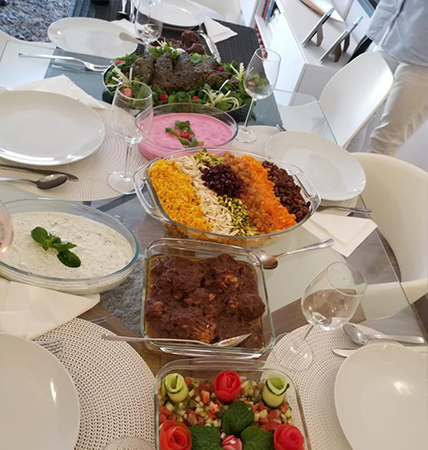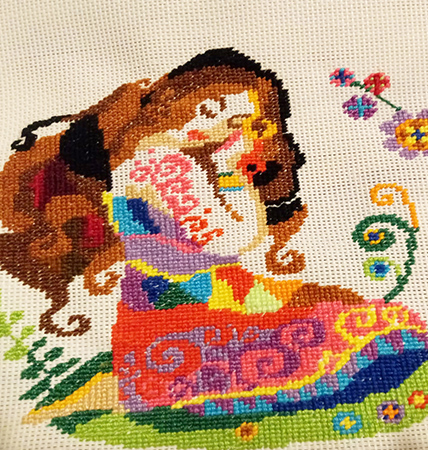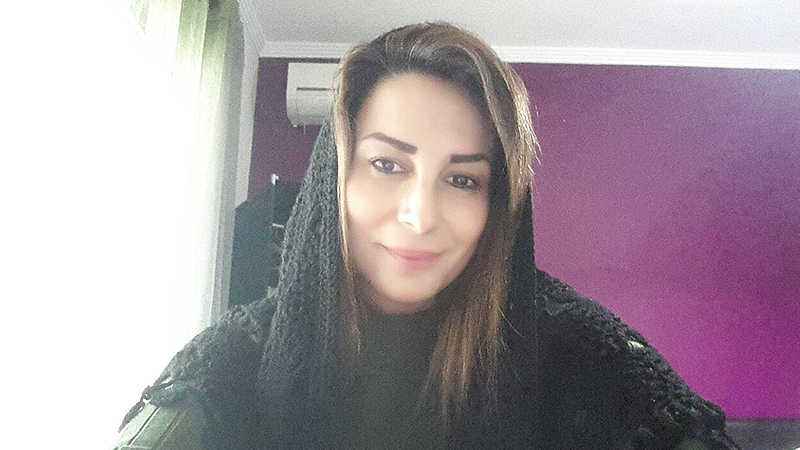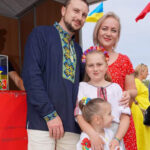Six years ago, Maryam Rostami came from Iran to live in Portugal. Residing now in Lagos with her son, 20-year-old Armin, she explains, “I love Iran and my people. It’s a wonderful country, but the laws that oppress women are harsh. I resented being treated like a second-class citizen.”
Maryam was born and brought up with her six siblings in the Mazandaran province of Iran, next to the Caspian Sea. Her parents worked in the local hospital, her mother in the laboratory, and her father as a radiologist. Maryam, at 16, became responsible for her younger siblings when her mother died, and she became proficient at catering for the family and gatherings. “This was when I gained the cooking skills that I now use to earn a living,” she remarks.
After marrying at the age of 20 and becoming a mother to Elham at 21, Maryam continued her education, gaining a bachelor’s degree in English translation. Working full-time as an English studies translator, Maryam managed motherhood and domestic duties simultaneously. When she was 31, she gave birth to Armin, but still progressed with her career, teaching English, translating for a paper-making project, and then working for a travel agency.
Homelife was unhappy so, in 2008, Maryam left her husband and went to Tehran. Her daughter was 19 at the time, but Armin was only eight. “The rule of Islam,” Maryam explains, “Is that children belong to the father. I had to leave my children behind, and I was devastated. Women suffer under a system of discrimination in the laws concerning marriage, divorce, inheritance and child custody. Luckily after one year, my ex-husband got weary of childcare duties, and the children came to live with me.”
Life got more challenging for Maryam in Tehran. “As a divorced woman, it was complicated for me to rent a room and retain employment. I was seen as a rebel as not only was I divorced, but I was indifferent to religion. I didn’t participate in the daily fasting and praying. Women are obliged to wear hijabs, and black clothes and I was opposed to that. I acquired teaching work, but the Ministry of Education constantly sabotaged my career, and I lost position after position. They thought that I would rot the brains of the students.”
Eventually, Maryam secured work as a translator for a mineral water factory in Tehran, which also had a branch in Dubai. She travelled back and forth between the two countries, but the stigma of being divorced still thwarted her life. “I was dissatisfied with being discriminated against and considered a predator when I spoke to male colleagues. I saved money, applied for a master’s degree course in Tourism Management in Faro, and flew there in 2016.”
Armin stayed in Tehran with his sister, and ten months later, once Maryam had secured residency, he joined her in Faro. During student holidays, she worked as a receptionist in a hostel in Lagos. After she had graduated, they moved there for her to work full-time. “Armin and I were treated like family. We were happy, but when COVID struck, the hostel shut down, and I was without work,” she explains.

Maryam’s cooking

Since then, Maryam has been concentrating on her culinary skills and is producing food for private events. An expert at cooking, including vegan, vegetarian, and kosher cuisine, her speciality is Iranian food.
“This is my passion, and I want to release what I can give. People can touch a part of my culture by tasting my food. One day I would love to open a restaurant.”
Maryam also makes rugs and bags using traditional crochet, knitting and needlework methods. “There is a saying in Iran,” she recounts, “It’s essential to have a creative skill as with this you will never go hungry.”
Much happier living her life in Portugal, Maryam remarks, “It’s fantastic to feel unrestricted. Here people respect me, and I am free to show my personality.”
WhatsApp:+351 919756225













